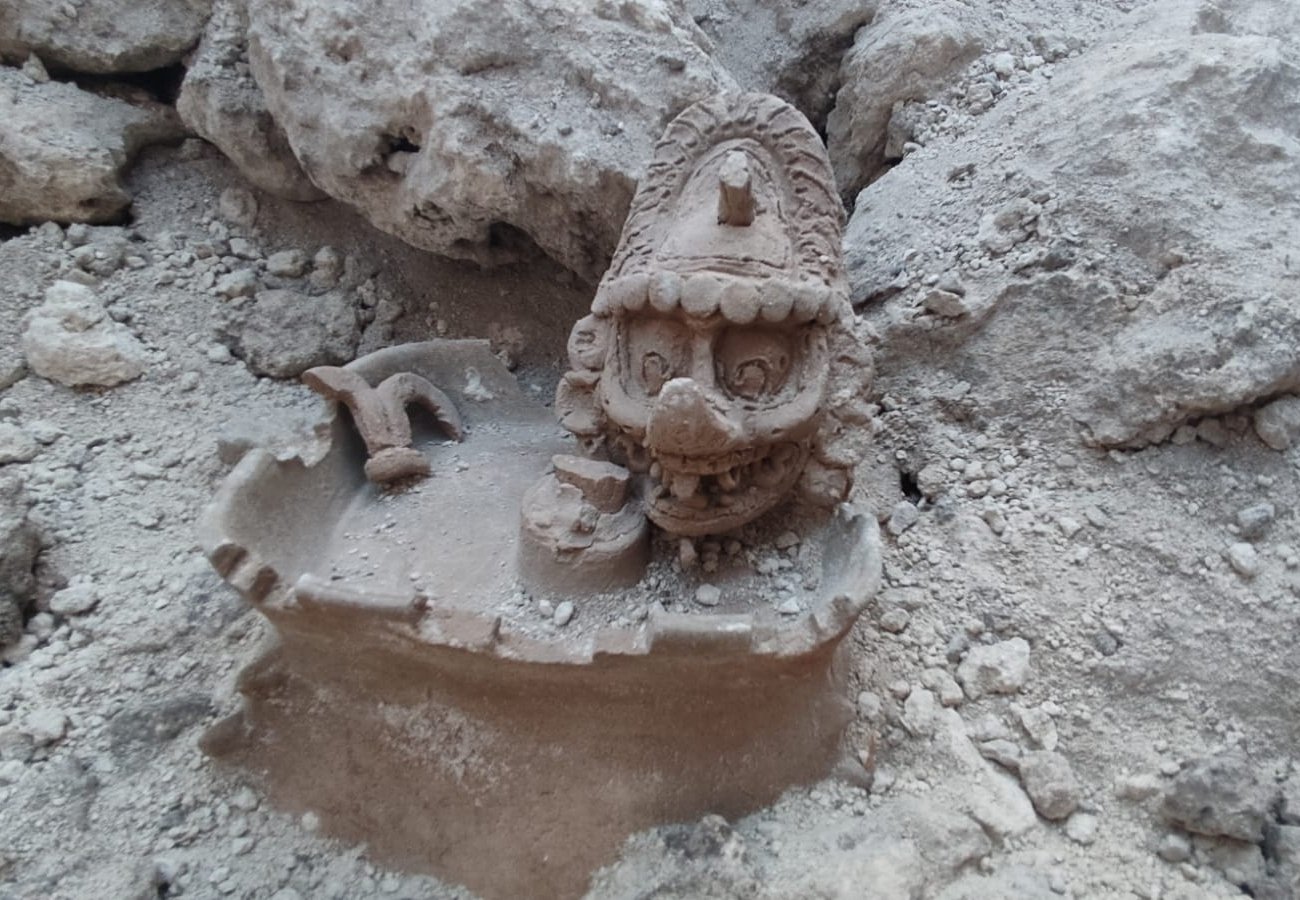
Archaeologists excavating construction sites along the new Maya Train route in Mexico have found a rare statue of the Mayan god K’awiil. The work is part of a recovery mission ahead of the railroad’s construction to ensure that the area’s ancient artifacts and monuments are not accidentally damaged.
The stone idol is dedicated to the Maya god of power, abundance, and prosperity, and is typically identified by his large eyes, upturned snout and a stone celt sticking out of his forehead.
Though this particular pre-Hispanic deity has more often been seen represented in paintings, relief sculpture, and the Dresden and Maya codices of Mexico, in this case his rare three-dimensional image was found on top of an urn.
“This finding is very important because there are few sculptural representations of the god K’awiil so far. We only know three in Tikal, Guatemala, and this is one of the first to appear in Mexican territory,” said Diego Prieto Hernández, general director of Mexico’s National Institute of Anthropology and History.
The discovery was made in section 7 of the Maya Train, an intercity railroad that loops around the Yucatán Peninsula and is expected to be completed next year. It has not been without its critics who say it is disruptive to the local environment, culture, and communities.
Other finds that have been made on the archaeologists’ previous rescue missions in sections 1-5 of the railroad include vessels, pottery fragments, bones, and the foundations of ancient structures belonging to Mesoamerican Mayan civilization. These objects are now being cleaned and classified in a dedicated lab in Chetumal.
“All this work should give rise to the analysis of the vast information, the preparation of academic reports and a great international research symposium on the Mayan civilization, which will be organized for this year,” said Prieto Hernández, who has also promised the construction of a new museum in Mérida to house the precious discoveries.
More Trending Stories: